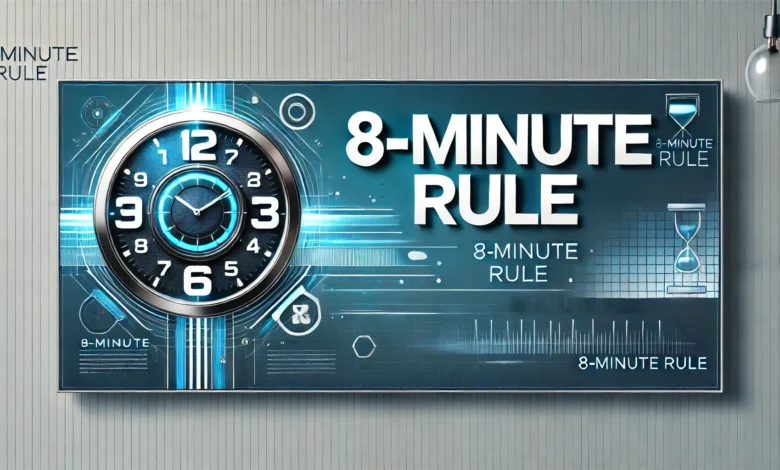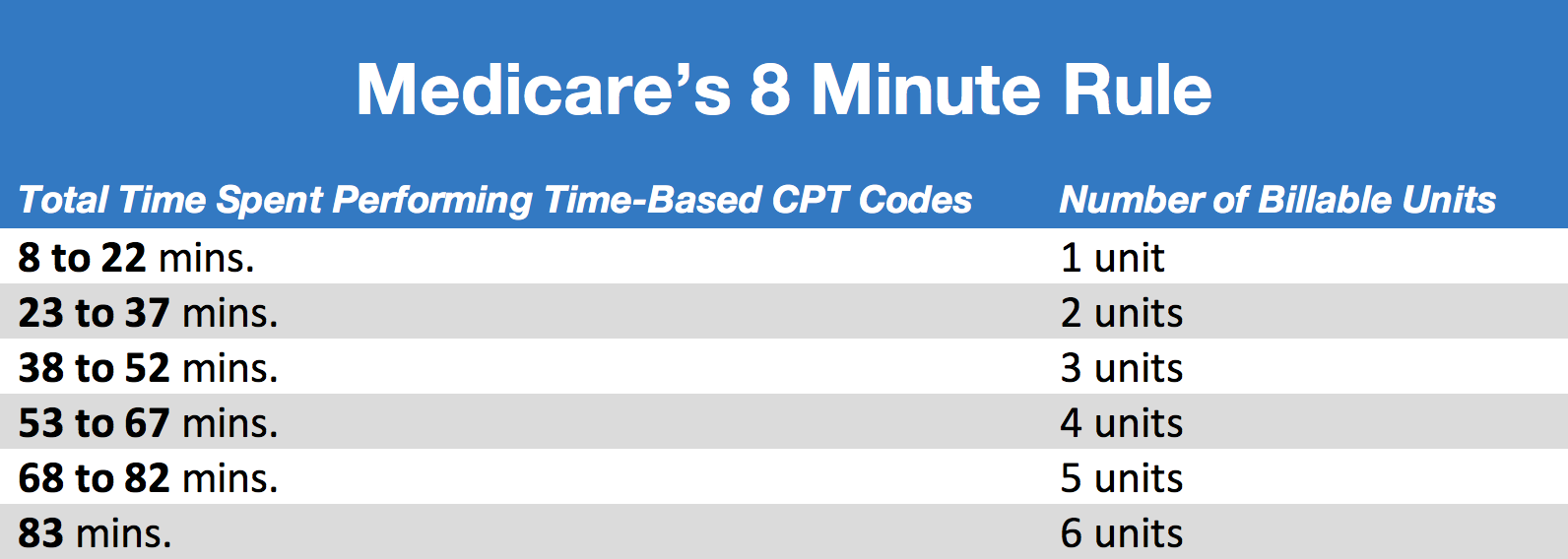The 8 Minute Rule: Understanding Its Impact and Applications

Introduction to the 8 Minute Rule
8 Minute Rule is a concept that has found its place in multiple industries, particularly in healthcare, time management, and productivity. While it may have different meanings depending on the context, its essence revolves around efficiency, billing, and making the most out of short time periods. Understanding this rule and how to apply it can be a game-changer, whether you’re a medical professional, a busy entrepreneur, or someone simply trying to optimize their time.
In this article, we will dive deep into the 8 Minute Rule, its origins, applications, and how it can benefit various aspects of life and work. By the end, you’ll have a clear grasp of why this rule matters and how you can implement it effectively.
The 8 Minute Rule in Healthcare Billing
One of the most well-known applications of the 8 Minute Rule is in the healthcare sector, specifically in physical therapy and Medicare billing. This rule is used to determine how healthcare providers bill for services rendered in time-based units.
In Medicare billing, the 8-minute rule applies to therapy services where units are billed in 15-minute increments. If a session lasts at least 8 minutes but less than 15, it qualifies as one billable unit. For example, if a therapist provides a service for 22 minutes, it would be considered one full 15-minute unit plus an additional unit, provided the extra time exceeds 8 minutes.
This rule ensures that billing is fair and that therapists are compensated accurately for the time spent with patients. However, it also requires careful tracking and documentation to avoid billing errors or compliance issues.
The 8 Minute Rule in Time Management
Apart from healthcare, the 8 Minute Rule can also be applied to time management and productivity. Many people struggle with procrastination, feeling overwhelmed by large tasks and deadlines. Implementing the 8 Minute Rule in daily routines can help overcome these hurdles and increase efficiency.
The idea is simple: commit to a task for just 8 minutes. Once those 8 minutes are up, you can choose to continue or take a break. More often than not, once you start a task, you’ll find yourself motivated to keep going beyond the initial 8-minute mark. This is because the hardest part of any task is simply getting started.
This method works well for people who suffer from analysis paralysis or perfectionism. By focusing on small time blocks, tasks feel more manageable, and productivity levels naturally improve.
The Psychological Impact of the 8 Minute Rule
The 8 Minute Rule is not just about productivity; it also has psychological benefits. Many studies suggest that starting a task—even for a short period—reduces anxiety and mental resistance. When people tell themselves they only need to work for 8 minutes, it removes the pressure associated with long, drawn-out tasks.
This technique also leverages the Zeigarnik Effect, a psychological principle stating that people remember and feel compelled to complete unfinished tasks. Once you’ve invested time into something, your brain will naturally want to continue, making it easier to push through and complete your work.
Additionally, this rule can be helpful in forming new habits. If you’re struggling to develop a routine, such as exercising or reading, committing to just 8 minutes makes the habit easier to sustain and eventually expand.
How to Apply the 8 Minute Rule in Daily Life
The beauty of the 8 Minute Rule is its versatility. It can be applied in numerous ways to improve daily routines and increase efficiency. Here are some practical ways to use it:
- Work and Study Sessions – If you’re struggling to focus, set an 8-minute timer and start working. You’ll likely continue beyond that time once you get in the flow.
- Household Chores – Instead of dreading a big cleaning session, commit to just 8 minutes. This makes chores less daunting and more manageable.
- Exercise – If working out seems intimidating, start with an 8-minute session. Often, you’ll feel inclined to extend your workout.
- Reading and Learning – Commit to 8 minutes of reading per day. This small step can turn into a lifelong habit of continuous learning.
- Breaking Bad Habits – If you’re trying to reduce screen time or other distractions, limit your exposure to 8-minute blocks.
By using the 8 Minute Rule in these ways, you’ll find that small actions can lead to significant improvements over time.
The Science Behind the 8 Minute Rule

While 8 Minute Rule may seem arbitrary, it aligns with scientific principles related to motivation and focus. Studies in behavioral psychology suggest that the average attention span for an individual ranges from 8 to 12 minutes before a natural need for a break occurs.
Moreover, research has shown that our brains require momentum to sustain effort. When we commit to short bursts of work, we trick our minds into engaging with tasks without overwhelming ourselves. This is why techniques like the Pomodoro Technique (which uses 25-minute work intervals) and micro-tasking strategies are so effective.
Additionally, time-based constraints like the 8 Minute Rule create a sense of urgency, making it easier to focus and avoid distractions. This technique helps improve efficiency and prevents procrastination.
Conclusion: Why You Should Use the 8 Minute Rule
The 8 Minute Rule is a simple yet powerful strategy that can be used in various aspects of life, from healthcare billing to personal productivity. It provides structure, motivation, and an easy way to tackle tasks without feeling overwhelmed.
By applying this rule in your daily routine, you can develop better work habits, reduce procrastination, and make the most out of short bursts of effort. Whether you’re looking to be more productive, improve your time management, or simply get started on difficult tasks, the 8 Minute Rule is a practical and effective approach.
So why not give it a try? Set a timer for 8 minutes and start working on something you’ve been putting off. You might be surprised at how much you accomplish!



